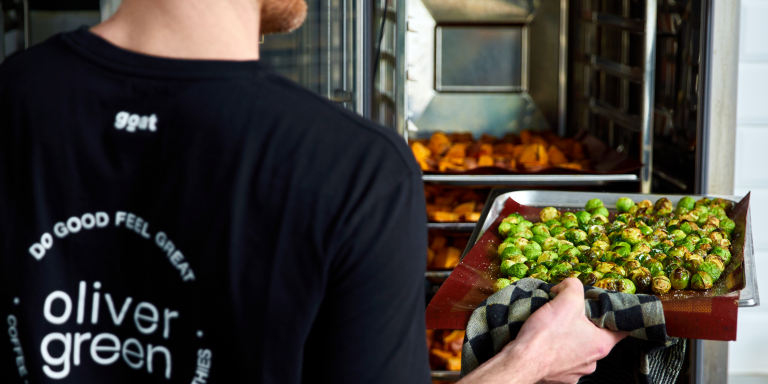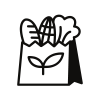
Whole Foods Plant Forward
Our belief is that eating whole foods without refined sugars and processed oils is what’s best for our health. We have three values to make sure that we stay true to our mission. Making truly healthy food easily accesible.

RULE #1
WHOLE FOODS
We cook only with unprocessed and nutrient rich foods. We believe that staying close to what nature is offering is better for our health and the environment.

RULE #2
NO REFINED SUGARS & OILS
We do not add any refined sugars in our meals and only use coconut oil and olive oil. We believe too many sugars are bad for our health and we don’t use any artificial chemical oils.

RULE #3
health benefits
Every single item on the menu should contain ingredients that add something to our health. No empty calories on our menu.
Plant forward explained
Unlike a vegan or vegetarian approach, a plant-forward diet showcases vegetables, fruits, legumes and grains but does not necessarily eliminate all animal-based foods.Our belief is that a plant forward diet can be one of the best diets for your health if done correctly. We want to show that plant forward food can be healthy, sustainable and delicious.
When starting Oliver Green in August 2019 we were big believers in a 100% plant based diet, mostly because we thought animal agriculture was harming the planet and animal products were not contributing to our health. As we’ve learned more about the health of our planet and of ourselves we figured this is not necessarily the case. What does make a difference is what kind of animal products we eat and where do you source them.
Feedlot animals are never good for the planet and our health, but regenerative farming can be a good way to produce food without chemical fertilizers and keeping our soils healthy. When the animals are fed a natural diet it also changes the nutritional value of their meat, eggs and milk. Some animal foods that are considered unhealthy can actually be very healthy if the animals are kept and fed the right way.
The last two years we got many questions about adding more protein sources to our menu and this left us in an internal discussion. We were a vegan company, but also big believers in a diet of whole foods without added sugars and harmful oils. Therefore we chose not to add vegan meat replacers full of artificial ingredients, but adding sustainable sourced organic animal products. Our menu still has over 90% vegan meals, but does include some animal products like organic eggs, feta cheese, chicken, salmon and Greek yoghurt.
sustainable sourcing
Organic and sustainable are often use interchangeable, but they don’t necessarily mean the same thing. Sustainability comes down to efficient water, land, energy and resource usage and looks at lowering emissions, while organic farming is governed by strict rules about using man-made fertilizers, pesticides and genetically modified organisms.
While organic farming is seen as sustainable, in many cases conventional agriculture is more efficient in terms of land, water, energy and resource usage. Organic farming also says nothing about the use of fossil energy sources and carbon emissions.
Our aim is to have the balance our impact on the planet and the quality of the ingredients we use.Therefore we make individual choices on each of our ingredients how and where we source. We base the decision of buying organic produce based on pesticide residue found in the final product.
Therefore we source berries and leafy greens organic for example.
We always try to source our produce locally if possible and when this is the most sustainable option. For example tomatoes that are grown in Spain by using the sun are preferred over tomatoes grown in greenhouses in the Netherlands as the emissions of transport are less than the emissions of the greenhouse productions. Meat and animal products we always choose organic and pasture raised option.

